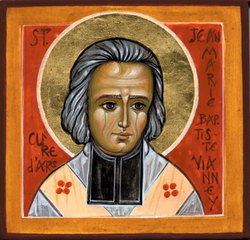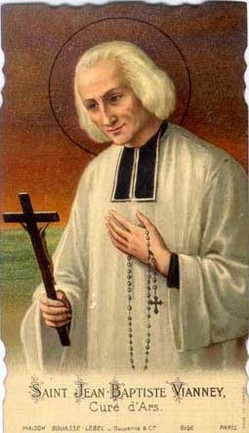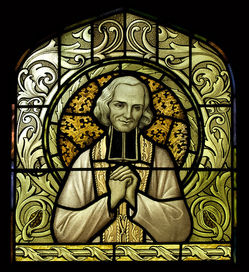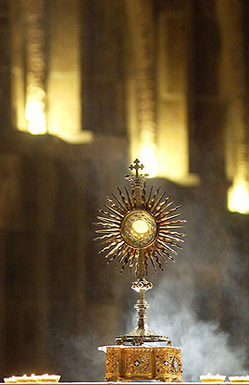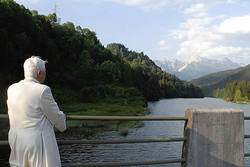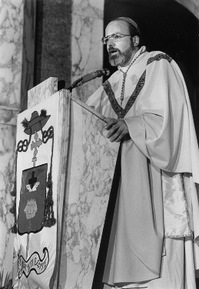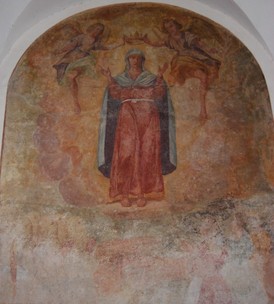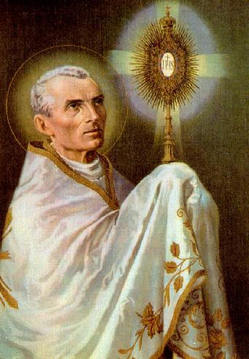Archbishop Mauro Piacenza writes that holiness is our concern for today, not something we should put off until tomorrow. His letter
to priests exerted below speaks of some elements that are important for those observing the Year of the Priest. Piacenza highlights the fidelity that Saint John Vianney had even when he wanted to
abandon the ministry in Ars, that is, being faithful and not creating some ambiguous, heroic sensibility is not coherent to the ministry of Christ. This is what alerts us that Vianney is a model worth following: grace truly building on nature. A theological concept that I associate most with
John Paul II in his theology of the body, that of “self-gift,” is applied here in the context of the life of the priest
and to the sacrament of the Church. In time we’ll here more about the role of self-gift as it applies to priesthood because it is an essential fact in the “becoming” of a priest of Christ and the richness of giving and receiving of that particular grace. Plus, the theology of self-gift, if really lived, might eradicate some evident sacred cows that diminish the flowering of life of holiness. Finally, let me draw our attention to the archbishop’s last sentence because it is worth the time reflecting on, not because he happens to be right but because he reminds us
what we are made for–God.
figure of priestly holiness, demonstrated not in the extraordinary nature of
his works but in his daily fidelity to the exercise of the Ministry; he became
a model and a beacon for the France of the early nineteenth century, and for
the whole Church, of every time and place; he is a source and consolation for
each one of us, even in the midst of various “exhaustions” which can touch our
priesthood.
and to the brethren, so that the Ministry may always be a luminous echo of that
consecration from which comes the one apostolic mandate and, in it, every
pastoral fecundity.
humanity and sincere affection, be for us an encouragement to love every more
deeply “our Jesus”: may His be the sight we seek in the morning, the
consolation which accompanies us in the evening, the memory and the
companionship of every breath we take by day. To live according to the example
of St. John Mary Vianney, as lovers of the Lord, means to always maintain at a
high level of missionary tension, becoming progressively but concretely living
images of the Good Shepherd and of him who proclaims to the world, “behold the
Lamb of God”.
celebration of Holy Mass be for each one of us an explicit invitation to always
have a full consciousness of the great gift which has been entrusted to us: a
gift which leads us to sing with St. Ambrose: “And we can all, raised to a
dignity such as to consecrate the Body and Blood of Our Lord Jesus Christ, hope
in Your Mercy!”
real expiatory spirit and sustained by the consciousness of being called to
participate in a “vicarious substitution” of the one High Priest, spur us on to
rediscover the beauty and the necessity, even for us priests, of the Sacrament
of Reconciliation. That sacrament is, as well we know, a place of real
contemplation of the marvellous works of God in souls which He delicately captivates,
guides and converts. To deprive ourselves of such a “marvellous manifestation”
is an irreparable and unjustified privation for us, even more than for the
Faithful, and for our ministry which is fed by the wonder which is born of
every miracle of human liberty which says “yes!” to God!
